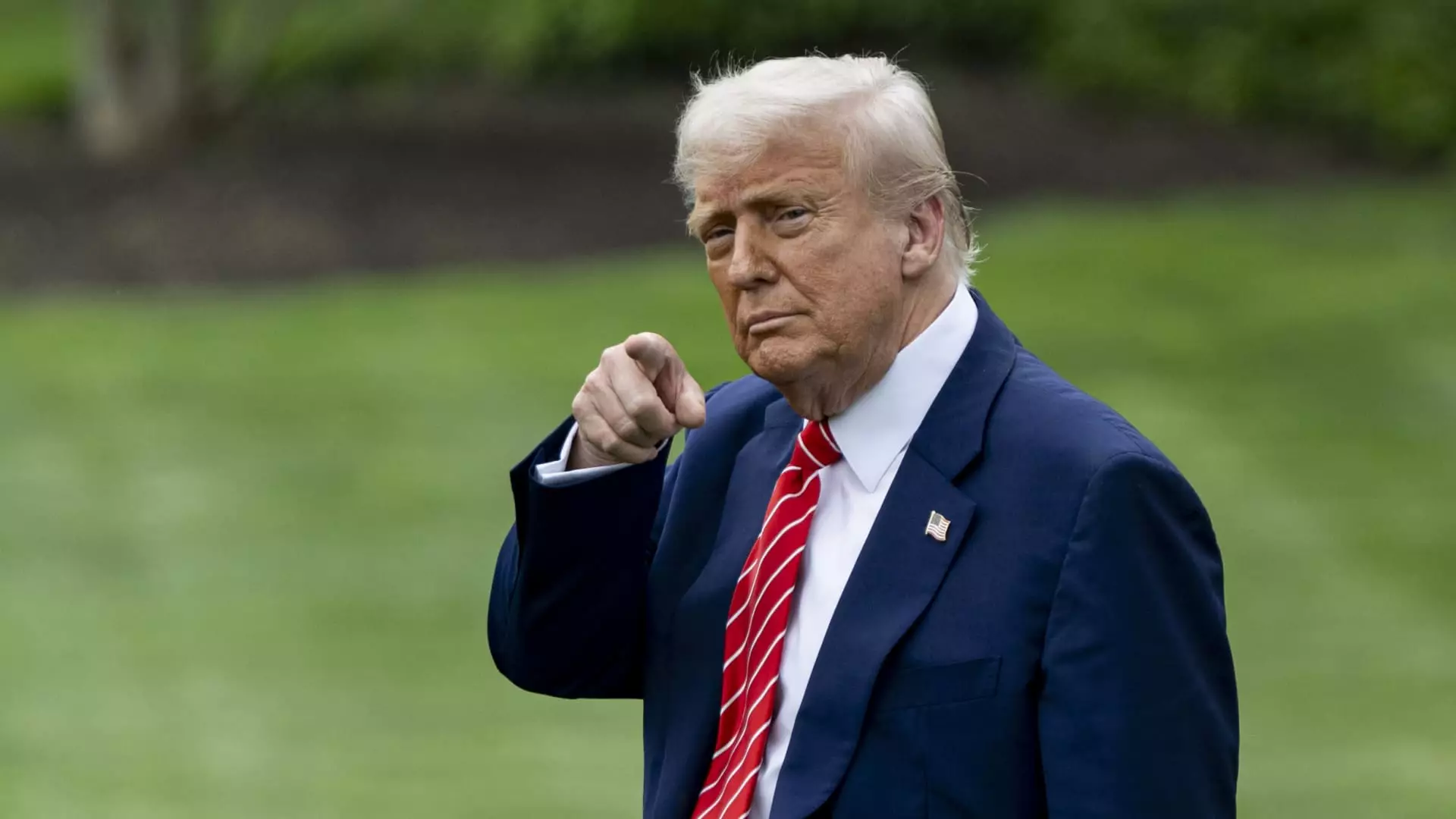The ongoing debates surrounding President Trump’s far-reaching spending package have unveiled a controversial provision known as Section 899. Designed to impose a 20% tax on foreign investors benefitting from U.S. investments, this legislation has stirred discontent among significant financial stakeholders. Dubbed the “revenge tax” by some analysts, this measure not only threatens to disrupt international investment but also raises alarming concerns regarding the broader implications for the U.S. economy. At its core, Section 899 embodies a jarring shift towards protectionist policies that could reshape the landscape of foreign investment.
In essence, the clause intends to penalize foreign entities based on their home countries’ taxation practices deemed “unfair.” This vague criterion opens doors to arbitrary implementation and could foster an environment of distrust among global partners. Were these foreign countries to retaliate, the U.S. may find itself in a spiraling cycle of tax wars—an unnecessary gamble that could stifle economic growth and innovation here at home.
The Ripple Effects on the U.S. Investment Climate
The ramifications of Section 899 extend well beyond mere tax implications. Wall Street’s initial shocked response, described by industry insiders as a “wake-up call,” signifies a deeper fear: A chilling effect on foreign investment that might leave the U.S. market less competitive. Analysts warn that such punitive measures could push capital toward more hospitable environments, diminishing the U.S.’s status as a premier location for investment.
Ernst & Young mentioned that hedge funds and private equity firms could face escalated withholding taxes—potentially as high as 50%. Such steep penalties have the potential to unsettle even the most robust financial structures. If foreign investors view the U.S. as a hostile environment, what incentive would they have to channel resources into American companies? By creating a barrier that effectively isolates U.S. markets, legislators risk alienating a vital source of economic vitality.
Moreover, the proposed tax hike applies only to foreign actors while providing domestic firms an unshakeable cushion. This imbalance fuels a narrative where American industries might rally for protection rather than innovation. Instead of striving for excellence, they could become reliant on legislation to strangle the competition—an affront to the spirit of capitalism.
Section 899 and Its Political Motives
The discussion surrounding Section 899 raises broader questions about political motivations disguised under the guise of fiscal responsibility. House Ways and Means Committee Chairman Jason Smith and fellow Republicans have stood behind this provision as a countermeasure against what they view as the excesses of foreign taxation. However, the underlying tone often seems more focused on domestic political posturing than true economic logic.
It’s imperative to consider that the language of “unfair foreign taxes” lacks specificity; this ambiguity does not only leave room for capricious interpretation but also encourages loose alliances and nationalistic sentiments that disrupt international relations. The idea of retaliatory measures is preposterous in a world where strategic partnerships are crucial for addressing global challenges. U.S. citizens deserve representatives who understand that productive relationships yield far greater benefits than economically isolationist policies.
Such a politically charged agenda could embolden anti-globalization sentiments both domestically and abroad, further undermining America’s standing as a leader in liberal economics. If political motives overshadow rational policymaking, the risk of inciting an irreparable rift with key ally nations becomes alarmingly real.
The Dangers of Seeking Revenge Over Reform
As lawmakers debate the fate of Section 899, one pressing question remains: Should the U.S. be establishing a framework of financial retaliation rather than pursuing meaningful tax reform? The dynamics surrounding international taxation are complex, yet a collaborative approach could yield far more favorable results compared to a reactionary stance that borders on economic warfare.
Rather than imposing additional burdens on foreign investment, U.S. legislators might consider focusing on domestic reforms that enhance competitiveness and diminish reliance on adversarial strategies. Encouraging multilateral cooperation on tax standards may not only exude confidence but also align with equity and fairness principles that are essential for a truly global economy.
We should ask ourselves if this measure ultimately serves an intended economic goal or merely pacifies a political agenda. True progress lies not in imposing revenge, but in fostering a landscape where every investor—domestic or foreign—can thrive through fairness, transparency, and mutual respect. Embracing this philosophy, rather than indulging in economic revenge, will be key to securing a sustainable future for both U.S. citizens and international partners alike.

